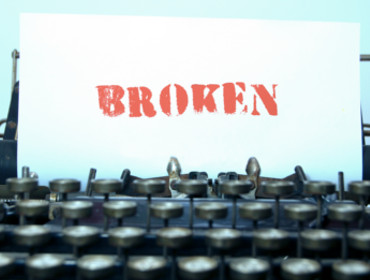You have
- a sharp hook for an opener in your story
- a clear premise (premise = theme + concept + character)
- heard about how story structure works
Usually, a good editor can tell if you have all these in place after they reach the first plot point: the call to adventure
The good editor
- Doesn’t make your book into theirs.
- Doesn’t change your theme, concept and voice. These are your own.
- They are obsessed and consistent about details like word choice, consistency of your narrative voice (do you use American or British English) and not to mention grammar errors.
- Your editor knows that a story free from spelling and grammar mistakes is a story that wins the hearts and minds of your readers.
- They can explain in the utmost detail why they’ve changed things.
- They shine, when it comes to story structure and character development. This is what a developmental editor does.
A developmental editor doesn't leave fingerprints on your story.
They are the guide to the best version of your story.
I believe that developmental editing is a complex and dying craft. Because if you want to do that, you need to know the process and the mechanics of a story inside and out. And you can only do that if you know what a story is made of.
A developmental editor works with you, so that you both get to understand
- what the premise of your story is (theme + concept + character)
- who your story characters are, as intimately as possible;
- the backstories and chronology of those significant events in your story timeline;
- how to fix your story structure so that your story flows like fresh water;
- if you have useless repetitions;
- names, characters or events that change last minute or halfway through your story;
- if you give an obscure language to your characters or your writing voice
- if your dialogue flows like a fantaisie impromptu1 – yes, your dialogue is music, when used right; it can make you laugh, it can make you cry, it can inspire you or it can even make you reflect on life.
When you book an editor, ask them to send you a free sample of their work.
Let’s say you send them the first 25% of your story – if you’re worried they’ll steal your idea.
This way, both you and the editor get a feel for each other: they get an idea about what you want to write and you get to see how they work.
That way, you can test out their skills and see if they’re professional or not.
A good editor is like a professional surgeon: honest and precise.
The sloppy editor
- Is the failed writer.
- They want to change your voice and your premise, based on their frustration of not being able to publish their stories successfully.
- The unprofessional editor has sloppy grammar, both in their website – if they have any – and in their correspondence. Not to mention the free sample that they’re supposed to provide.
- They don’t know the differences between “its” and “it’s” or “they’re” and “their” – if you’re shocked, yes, these editors exist – and they don’t care if you have “colour” and “color” throughout your story.
Besides, the sloppy editor doesn’t care that your narrative voice mixes American English with British English. In short, the sloppy editor won’t ask you and they won’t care from which region your writer’s voice comes.
5 myths and 3 truths about editors and their process
The myths
- All editors are the same
- I’m self-published. Why would I need an editor?
- Fine. How do I find an Editor?
- Ok. I’ll work with a developmental editor. Is my book good to go now?
- The bastard makes stuff up. What’s with all the markings?
The truths
- Editors love books and stories
- They also love working with (most) authors
- A developmental editor is the Fiction Coach you never had
The myths
1: All editors are the same
Hopefully, we’ve put this one to sleep earlier, when we saw the differences between a good editor and a bad one.
Also, there are three types of editors that you’ll need and it’s not always a safe bet that your editor will tackle everything for you.
- The developmental editor. This is the kind of work that I love to do. You can check out my case studies, where I dissect stories from all walks of life.
- The copy editor. This is the editor that nurtures your copy and your style. Doesn’t get to touch the story in itself.
- The proofreader. This is the person that irons out the last bugs from your writing: spelling, punctuation and formatting.
Not all editors are made equal and while some of them can provide for many of these three functions, not all functions are being taken care of at once. Read myth no. 3 to find out why.
Not to mention that besides an editor, you, as the author, will need a book cover designer, a website and a strategy to place your book in front of your readers.
2: I’m self-published. Why would I need an editor?
Your loved ones, while honest and caring – traits a good editor must have – don’t have the training necessary to spot mistakes. As mentioned earlier, they’d have to know what a good story sounds like. And know it very well.
All the more reason if you’re a self-published author. And a first timer at that.
If you’ve published books before, maybe you can chance releasing your book with just a proofread. But otherwise, it’s not recommended.
You need someone with a sharp eye for detail and the technical and professional skills. Just like we talked about the professional editor.
That’s, of course, if you’re serious and you want to sell your story.
3: Fine. How do I find an Editor?
You ask for recommendations, like you’d do with finding a dentist or a surgeon.
Why is searching for a good editor just like searching for a good doctor?
Because cheaper isn’t always better. Just like we talked about it earlier, there are editors and there are editors :)
Different skillsets, different mindsets and different levels of professionalism. Just like with anything under the almighty sun.
Now, if you don’t have any way of finding an editor through recommendations, browse services like Upwork.com or other freelance platforms.
Get some candidates, tell them what exactly you’re looking for (developmental, copy or just proofread) and send samples of your work.
After this, you can select the one who asks the best questions and fits your budget and time frame.
4: Ok. I’ll work with a developmental editor. Is my book good to go now?
Maybe.
No, I’m not insane.
And no, I’m not cheeky either.
There were times that I’ve worked with someone for so long on their story, that even I got past the fresh eyes phase.
So if you’ve hired me to help you with developmental editing and we’ve spent quite the time on it, I may advise you to employ a copy editor or a proofreader, to iron out any remaining faults in your copy.
5: The bastard makes stuff up. What’s with all the markings?
An editor makes the best book out of your manuscript. That’s their job.
That's what you buy: professional judgement.
I said judgement, not criticism.
Critics are those people that come on the battlefield after the war is over and shoot the wounded.
You buy the editor’s years of experience. And love of books – see the upcoming first truth.
But you must also tell your editor after which style guide you’re taking after.
Is it your run-of-the-mill Strunk and White? Is it The New York Times Manual? The MLA?
Communication, like in a successful marriage – or a successful brain surgery – is key.
The truths
1: Editors love books and stories
Otherwise, we wouldn’t be editors.
There’s also this thing, in which I believe with all my heart:
The more you teach people something, the better you understand it yourself.
I had the same experience when I was teaching my friends how to code or when I was showing them how to parry and attack, after a Krav-Maga class.
The same happens when I work with an author on their story and teach them the art of storytelling.
I fell in love with books from a young age and I’ve been in love with the written word all my life.
I’ve made mistakes too, in my venture of becoming a professional developmental editor, from a professional programmer.
But I’ve always regarded books as carbonated bliss and those people brave enough to write them, as students of truth school.
Because that’s the first thing you do, when you decide you’ll write a story: you want to tell your most secret dreams and wishes to the world. And that takes bravery and in turn, bravery means telling the truth.
2: They also love working with (most) authors
Do you remember when you were a kid and you made friends easily?
That’s how an editor feels. He feels like he can make friends like that – snap of the fingers!
Just see yourself when you were a kid and remember those times.
An editor is a grown-up kid who makes friends on the spot, because he speaks the same language that the author does.
- An editor gets an author and their needs.
- An editor speaks the same language like the author.
- And most important of all, an editor helps you in your darkest hour: when you’re ready to murder your darlings – that’s lingo for “trim the extra fat and make your story tight.”
Of course, like in any field, a friendship can turn sour and there are some cases in which there’s a disconnect between the two, the author and the editor.
In this case, it’s wise you both treat each other with respect and see that you both get what you need: the author gets their manuscript upgraded and the editor gets their money.
Sad as it may be, these things happen too.
3: A developmental editor is the Fiction Coach you never had
Like I said earlier, you want to tell your truth to the world.
You want to share whatever it may be that you’ve learned, either through a painful experience, or a happy coincidence that later turned out it wasn’t coincidence, it was just your years of careful planning and scheming – just kidding.
You’re in it for the story, the retelling of what you want the world to know from you.
Maybe you know how to do that, after so many years – like Stephen King does – or maybe you need help. That’s the help professional editors give you: raw efficiency.
They are your partners in crime, so to speak.
And a good editor will be there for you, helping you with the perfect crime: the perfect version of your story.
If you liked this article and think others should read it, please share it on Twitter



